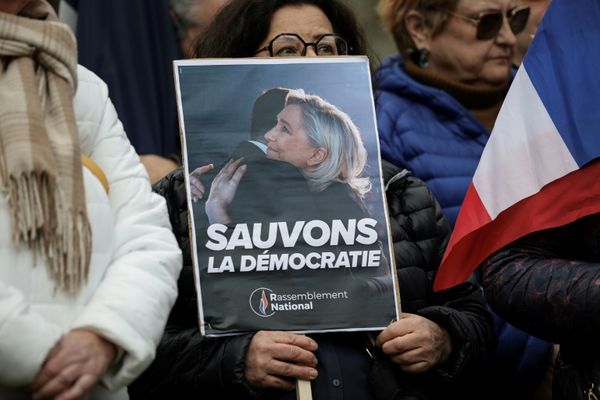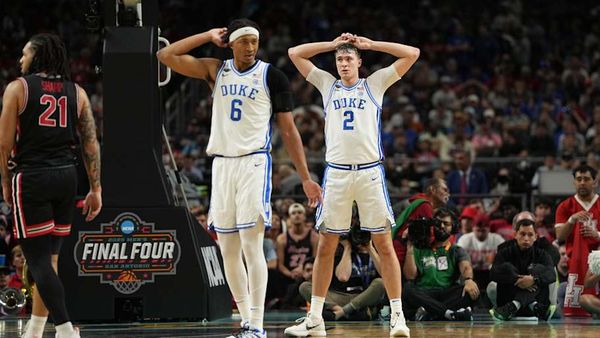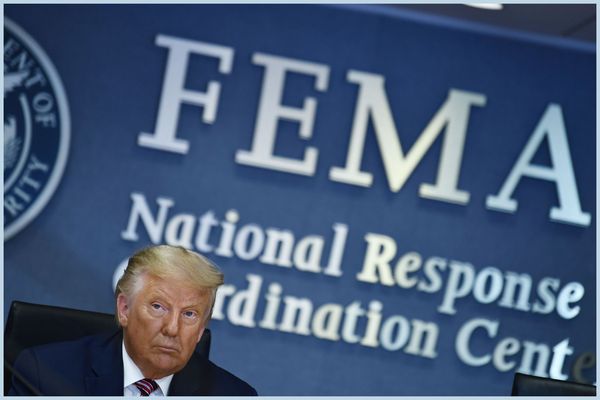
The Premier League
It’s not been a great year for Brand Premier League, the supposed best league in the world, where just about everyone is perpetually angry or miserable. Who’s happy? Manchester City, of course. Villa, sure. But elsewhere? Liverpool rage about kick-off times. Wolves are furious about VAR. Forest are mad about that too but also about their PSR-induced points deduction. Everton see your points deduction and raise you a takeover saga that has rumbled on without resolution. Sheffield United have had a season so dismal that they may never want to get promoted again. On it goes, the whole thing infused with a sense of dissatisfaction, as clubs grasp for direction (Chelsea, Manchester United) or bump their heads against the glass ceiling and wonder what the point of it all is (Brighton, Bournemouth, Fulham). And everyone is paying more (soon to be even more) for a reduced spectacle, dulled by the dread hand of VAR.
Speaking of which, on a governance level, things have been even more lamentable: the ongoing row with the EFL over a financial settlement, the opposition to the football regulator, the scrapping of FA Cup replays … at every turn the Premier League leaned towards favouring the few over the many. Which is, of course, the whole idea. It’s not that the mask has slipped (let’s be honest, what mask?) and this season it has felt at times like we’re approaching a watershed, the moment where the naked avarice just becomes a bit too much.
The promoted sides
Major caveats apply here. The gap between the Championship and the top flight feels ever wider and the cash injection required just to compete is increasingly ludicrous. For the most part, it’s not Burnley’s, Sheffield United’s or Luton’s fault. But still, it’s the first time since 1997-98 that all three promoted sides have been immediately relegated and, more than that, it’s never really been in doubt.
Burnley, who came in on the back of a 101-point title win with eyes on mid-table safety, quickly slipped into the relegation zone and never got back out. Sheffield United sold their best players, hit the bottom in mid-September and stayed there – save for a couple of weeks at the dizzying heights of 18th when Everton’s points deduction kicked in. The Blades racked up a Premier League record of 104 goals conceded: the worst defensive record in the English top flight since Ipswich in 1963-64.
Luton perhaps deserve to sit separately from their yo-yoing peers – at least they threatened at times to buck expectations – but they were still in the bottom three for two-thirds of the season. In truth, Everton and Forest should be grateful: they could not have chosen a better season to pick up their points deductions.
Chelsea’s summer spree
There was much glee at Stamford Bridge in August when, in the space of a few days, Chelsea beat Liverpool to the signings of both Moisés Caicedo and Roméo Lavia for a total outlay somewhere in the region of £160m. But it has not gone according to plan. Lavia – snapped up from Southampton – has managed just 32 minutes of Premier League football due to injury, while Caicedo has struggled to rediscover the form that made him such a hot property at Brighton (a stunning final-day goal apart). Declan Rice cost Arsenal less than the £115m Chelsea paid for the Ecuadorian. Real Madrid paid less for Jude Bellingham. He could still come good but an instant impact was not asking too much. Perhaps he and Chelsea just need a break from the deluge of injuries and ongoing squad-bloat that have pitched Mauricio Pochettino’s side into a state of constant flux: 48 players have featured in Chelsea’s Premier League matchday squads at some point this season.
VAR and PGMOL
“That’s wrong that, Daz …” Does anything else need to be said?
Erik ten Hag and Manchester United
United have undeniably gone backwards in Ten Hag’s second season in charge: eighth is their lowest finish since they came 13th in 1989-90, their 14 league defeats the most since that modern nadir. They won the FA Cup that year and there’s still time for United to do likewise this season. But the lows stand out in the memory: the home defeats to Brighton and Crystal Palace in September, the chaotic few days in west London when stoppage-time goals at Brentford and Chelsea turned six points into one, the 4-0 defeat at Palace, the entirety of their Champions League campaign …
Off the field, change is in the air. Jim Ratcliffe came in with his £30bn fortune and cheered everyone up by demanding cleaner desks, fewer emails, and a big handout from the taxpayer for a shiny new stadium. All the signs point towards the new broom sweeping Ten Hag out of the manager’s office this summer. This is the sixth time in the 11 seasons since Sir Alex Ferguson’s reign that the club have finished outside the top four and perhaps it says something about their declining fortunes that Ten Hag has survived so long. Speaking of which …
The managerial merry-go-round
It’s been a bad year for fans of hire-and-fire culture. Only three Premier League managers faced the axe this season – after a record 13 in 2022-23 – and only one of them paid off. Paul Heckingbottom was the first to go in early December, his reward for guiding Sheffield United to promotion in 2022-23. Chris Wilder’s 0.46 points per game was not much of an improvement on Heckingbottom’s 0.36. Sheffield United stayed bottom.
Steve Cooper was ditched by Nottingham Forest a couple of weeks after Heckingbottom’s exit, with Forest in 17th just a point outside the relegation zone. Again the move was hardly a triumph, Nuno Espírito Santo increased the gap but the club remained marooned in 17th (Cooper’s PPG this season was 0.82, Nuno’s 1.05).
Roy Hodgson’s February exit was the final mid-season departure, with his replacement Oliver Glasner the only new man to bring a serious upturn. Even then there is a temptation to suggest Palace’s improvement is at least in part down to the availability of Michael Olise and Eberechi Eze. Six of Glasner’s seven wins have come in matches when the pair have been on the pitch at the same time, an all-too-rare occurrence this season. But either way, clubs have generally put their faith in stability over the thrill of the new.







